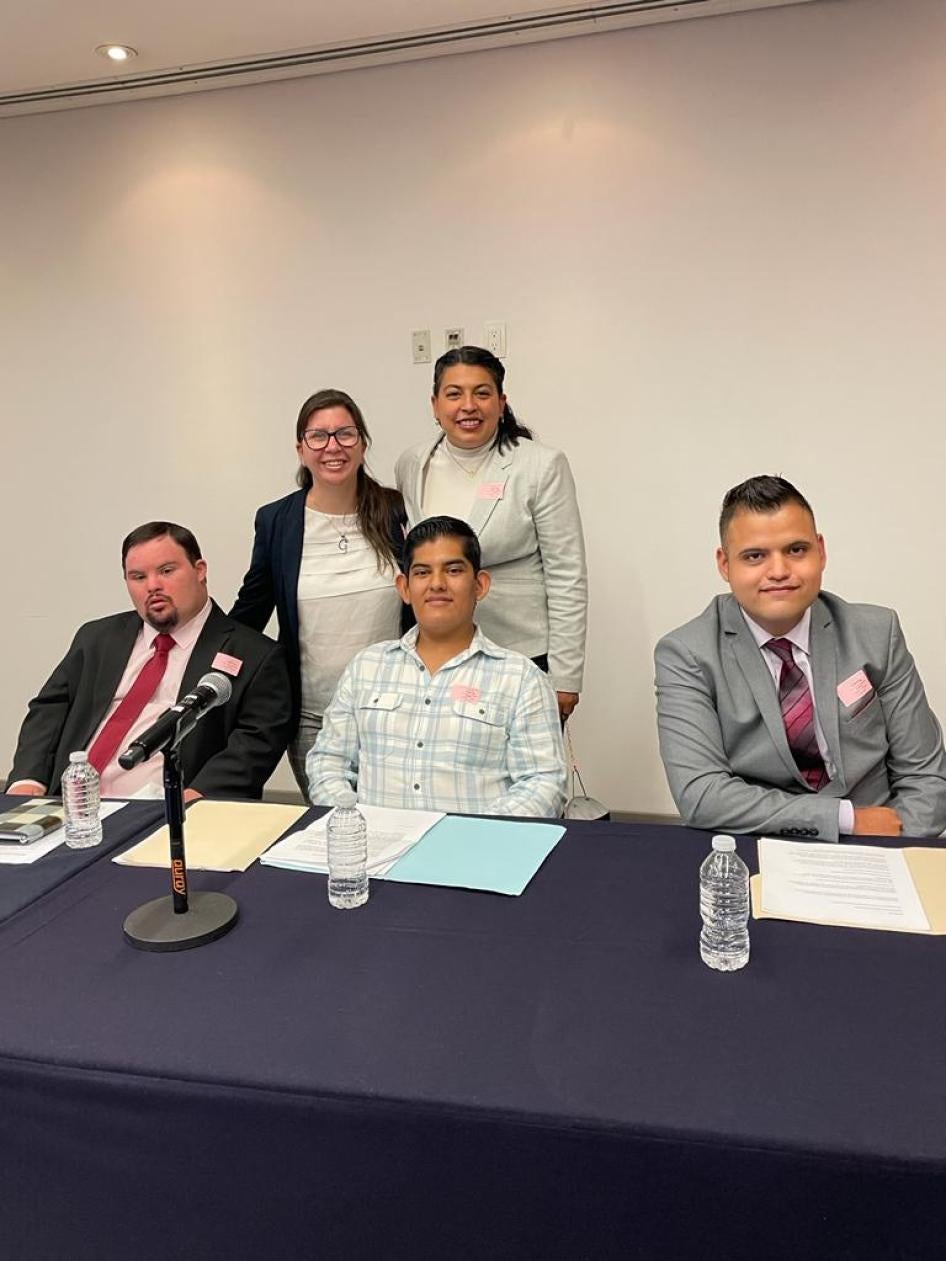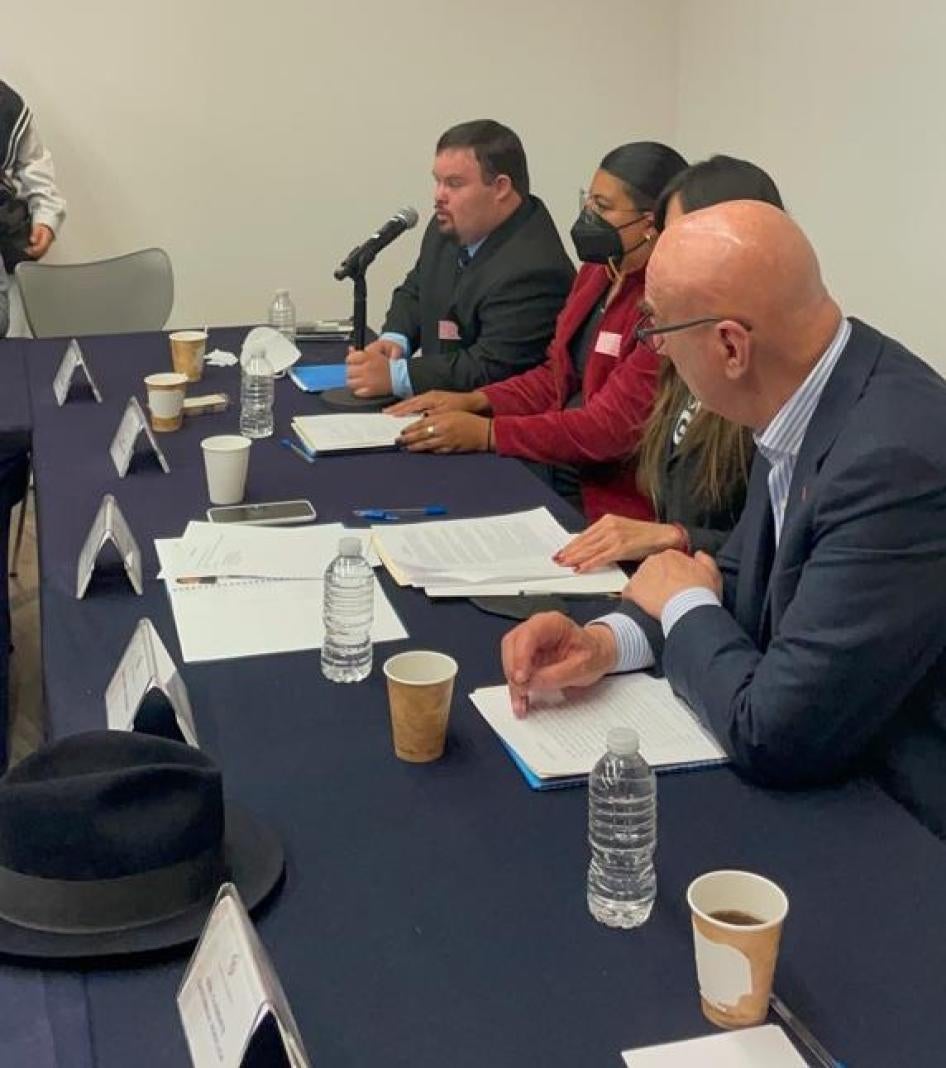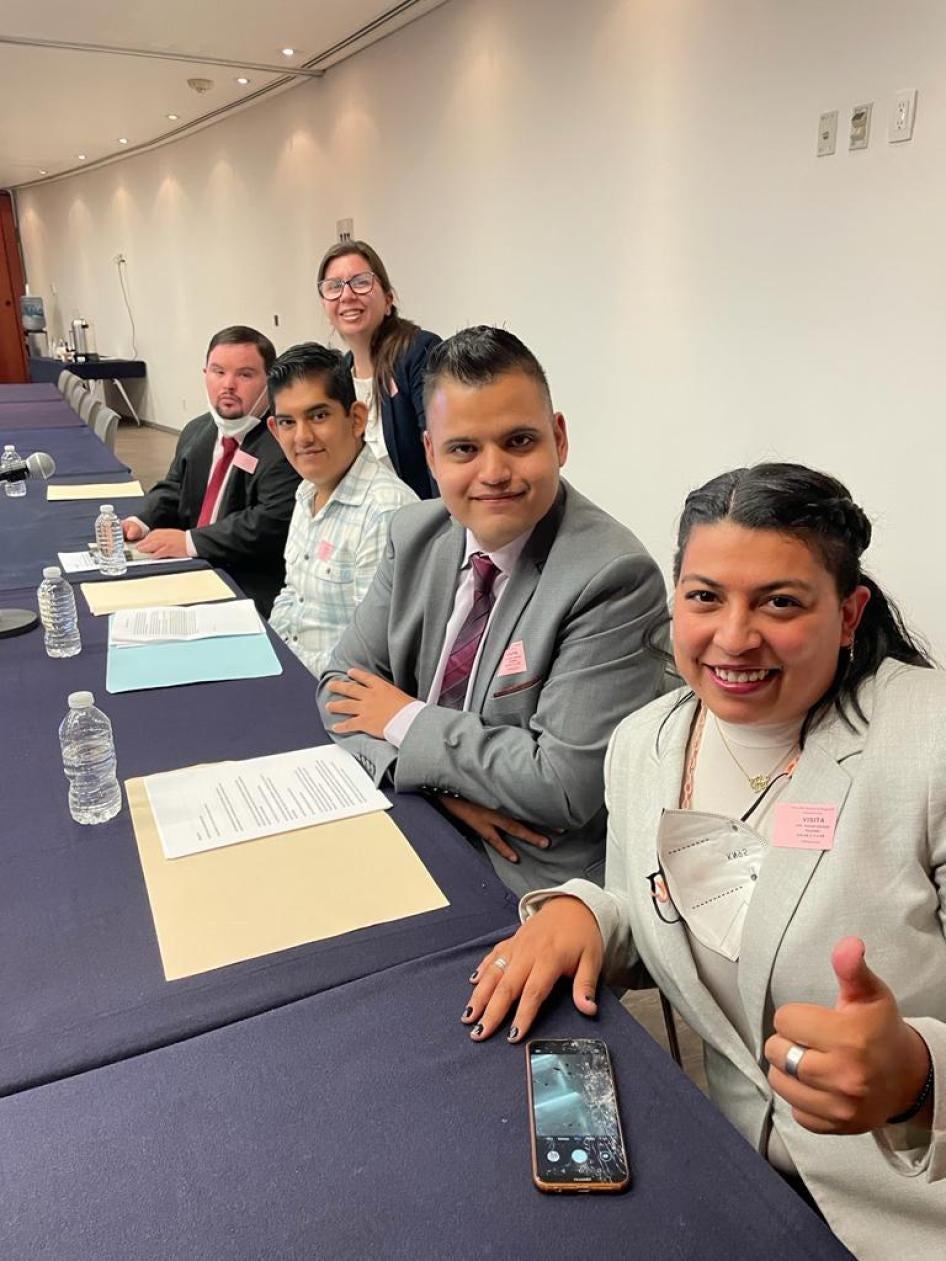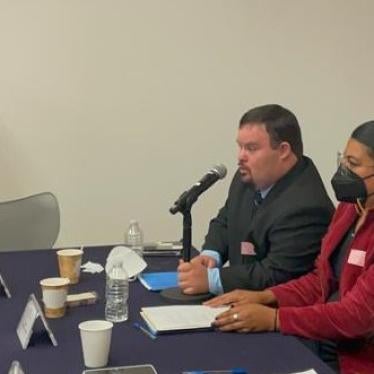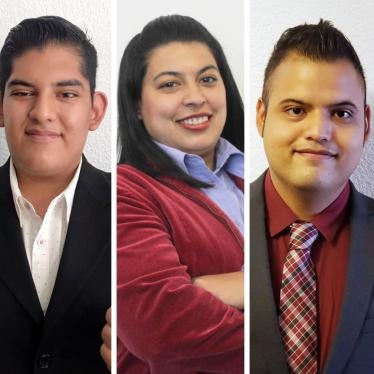In March 2022, a group of young people who identify themselves as having intellectual disabilities organized a series of meetings with representatives of political parties in Mexico to ask for their commitment to ensure people with intellectual disabilities are able to participate in public life and exercise their political rights, above all the right to be elected to run for office. Read their presentations below.
Luis Alfonso García
Honorable Representatives of Political Parties,
My name is Luis Alfonso García. I am a member of a group of self-advocates determined to be trained to participate in the public life of our country.
We are a group of young people with disabilities, gathered with the clear objective of exercising a right we have not been allowed so far: the right to participate in collective decisions.
I would like to introduce you to Fernanda, María, José, Diego, and Bryan, who came from Peru to join us at these meetings.
Our inclusion is necessary now.
We do not want to postpone it anymore.
The fact that we have disabilities, in this case intellectual disabilities, should not be an obstacle for us to have control over what we want and be allowed to make proposals.
Some human rights organizations are helping us to create a space where we can discuss how we want our lives to be and how to improve our country.
To make ourselves known, we have had meetings to share our opinions, experiences, and ideas.
We want to exercise our right to participate in the political life of our country.
And that is why we have come together today.
Over the last years, people with disabilities have worked not to be seen as persons with limitations, but as people who can make valuable contributions to our country, our families and our lives.
We are convinced that we can contribute to change and need to be heard and taken into account. We have been working on a manifesto that will be delivered today. We would like to know your opinion on this matter and how you can support us to guarantee our right to participate in political life.
Many thanks!
Bryan Russell Mujica
My name is Bryan Russell Mujica, I am from Peru and I have Down syndrome. I want to share with Mexican men and women my experience in the world of politics. I started my career in 2018. My main interest was to promote inclusive education. The education system in Peru, as in most Latin America, excludes people with intellectual disabilities. Only a few of us can exercise our right to education.
That is why I got involved with political movements from my country that also promoted inclusive education, for example, with the candidate for Mayor of Miraflores, a municipality in Lima. I got to know him, promoted his campaign and got to be in charge of the inclusive education area. That is how I started my political career.
In addition to inclusive education, I was interested in promoting a quota system to include people with disabilities in political parties. The main objective was to promote social inclusion and educational development so people with disabilities could participate in the social development of their own communities. We wanted an inclusive municipality.
I met the President of the political party Perú Nación, Francisco Diez Canseco, and the Secretary of the party, Carlos Manuel Ponce. That party included me in the list of councilmen.
People wondered if it was possible that a person with Down syndrome could run for elected public office. Throughout the way, I was able to prove that I had my own opinions and that I was not someone to be used. The campaign lasted for 56 intense days of long working hours; however, it became clear that it was possible to participate in politics. All we need is to have opportunities and political parties can generate them.
In the afternoon of the election day, I found out our opponent had won. It was very saddening and I felt awful but that didn't stop me because I was focused on my project of inclusive education for people with disabilities at national level, which is why I ran for Congress in 2020.
In politics, you win or you lose; you can have voter support or not; yet we all have the right to participate in equal conditions and political parties have a great responsibility in making that happen. Disability cannot be an excuse to exclude us from political processes. We also need to be represented. Democracy is not possible if it does not include all diverse voices and the voice of people with intellectual disabilities must also be heard in collective decision-making.
There are many prejudices that prevent people with disabilities from becoming subjects with full rights; many countries even forbid people with disabilities from voting, as it was the case in Peru, until recently. Luckily, that is not the case in Mexico; however, we should promote not only our right to vote but also our right to be voted for and to participate in collective decisions as agents of change.
I have already run twice for Congress in my country, the first time as a candidate for Perú Nación party and subsequently for Victoria Nacional party. On both occasions, I obtained a considerable number of votes: 14,000 with Perú Nación. My street campaign and getting in touch with people had very good results and even though Perú Nación did not obtain enough votes to be represented in Congress, one thing was clear. Many people voted for me and they were interested in my four proposals: education for everyone, more jobs for people with disabilities, proper compliance with Peru’s disability legislation and zero tolerance towards corruption.
I was able to participate because the political parties that nominated me helped me with my political training and provided me with a political identity, all in a warm environment that allowed me to build character and to have self-confidence, a sense of political belonging and scope. I believe that every country, including Mexico, should adopt these initiatives and be open to diversity of militants and activists, giving them a base and a channel for participation.
Thank you very much.
María Fernanda Castro
Good morning and thank you for this opportunity.
My name is María Fernanda Castro, I am 29 years old. I am a self-advocate at CONFE (Mexican Confederation of Organizations Working for Persons with Intellectual Disabilities) and I represent Mexico at the Empower Us group of Inclusion International.
I want to express our concern about political education for people with intellectual disabilities, because we see that if we do not have information we are left out from the country’s decisions.
The main documents of the political parties, action programs, bylaws and party platforms are not accessible to us. This means that we need them in an easy-to-read format with pictograms.
That is why we must have access to information, so that people with intellectual disabilities are able to participate in electoral processes and even be part of a political party.
It is urgent to create spaces for people with intellectual disabilities. To receive political education we need to get information about political issues through:
- mass media
- accessible documents
- information in schools and civil society organizations
- training drills
- consulting people with intellectual disabilities
- fair and equal treatment.
We need to know how we can run for public office, for example:
- president,
- congressman,
- congresswoman,
- mayor or others.
If we all have access to the information we not only will feel included, but we will also be able to participate in our country’s decisions, because we all deserve being heard to have an inclusive Mexico.
Nothing About Us Without Us.
Thank you for your time.
Diego Ortiz Cruz
Honorable Authorities of Mexico,
Today, I want to talk about the international obligations that our country acquired by signing the Convention on the Rights of Persons with Disabilities.
In 2006, the United Nations approved this new law which provides that people with disabilities have the same rights as everyone else and that we are all equal at law.
Specifically, article 29 says that people with disabilities can effectively and fully participate in political and public life on an equal basis with others. We have the right to vote, to be voted for and to run for any public office.
In my opinion, we need to think about this, because in our country there are no people with disabilities holding elected positions.
We would like to request that as a political party you promote our participation in public affairs and actively help to create the right environment for people with disabilities to exercise these rights. For example, by using a clear and simple language to help us understand your political statutes and proposals; in an easy-to-read format with pictograms, providing instructions in Braille and Mexican Sign Language; creating spaces to be able to join your parties, taking us into account and presenting us as candidates, offering training courses within the political parties, etcetera.
This way, we will no longer be discriminated against and you will create an inclusive culture that allows us to participate in the public and political life of our country.
María José Gutiérrez Sánchez
Good morning, my name is María José Gutiérrez Sánchez and I am 29 years old. I am a person with an intellectual disability and a self-advocate at CAPYS, A.C. (Center for Personal and Social Autonomy, Nonprofit Organization). Today, I want to talk about something that is very important to us and not often discussed, which is independent living for people with disabilities in Mexico and throughout the world.
For various reasons, a lot of people with disabilities are not independent in all aspects of their lives:
- because there is not enough information;
- there are no accessible places;
- other people think that we will be kids forever;
- or there is no empathy, among other reasons.
Having an independent life means choosing freely and making decisions about our own life. It does not mean doing everything by ourselves, it means receiving support to have a better understanding and to make decisions.
That is why I consider that it is important to have more accessibility in all the aspects involved in an independent life, from support to apply for a loan and accessible housing to accessible information to vote and be voted for.
I believe that it is important to have our own place to live, like any other person. Perhaps we require some support but this should not be an obstacle, as it should not be an obstacle to participating in the political life of our country.
If we are trained and taught how to do things, we can do it, but this is not just for people with disabilities; it should be for everyone.
Thank you.
